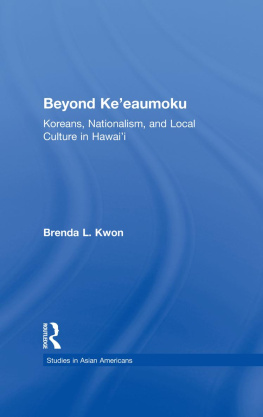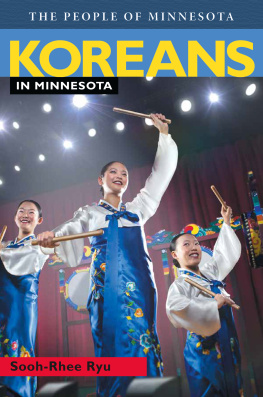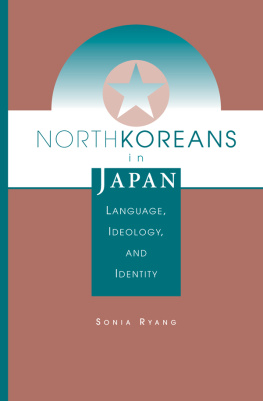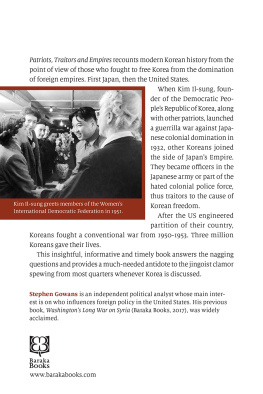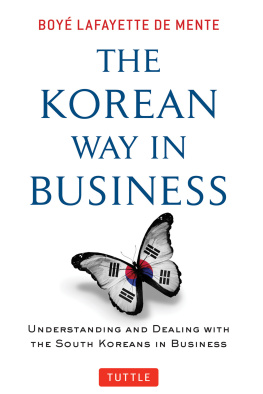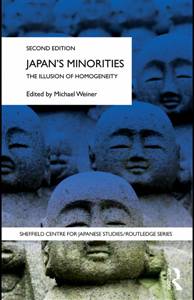
Voices of the Korean Minority in Postwar Japan
Shedding new light on how the histories of zainichi Koreans have been written, consumed, and discussed, this book addresses the roots of postwar debates concerning the wartime experiences of Koreans in Japan.
Providing an overview of the complicated historiography, it explores the experiences of Koreans located at Ground Zero in Hiroshima and Nagasaki, as well as the history and processes that coerced Korean women into military prostitution. These debates and controversies continue to attract attention regionally and globally, and as this book demonstrates, they are deeply embedded in ideas dating back decades earlier. By tracing the roots of these debates in historical writings from local history groups to zainichi and Japanese scholars, we may see how written histories have been used for particular social, political, or cultural purposes, and how they have lent support to certain interpretations and memories of past events across the political spectrum.
Interdisciplinary at its core, Voices of the Korean Minority in Postwar Japan will appeal to audiences including those interested in modern Japanese and Korean history, historiography and methodology, and memory studies.
Erik Ropers is Associate Professor of History and Director of Asian Studies at Towson University, USA.
Routledge Studies in the Modern History of Asia
132 China and Southeast Asia
Historical Interactions
Edited by Geoff Wade and James K. Chin
133 Southeast Asian Education in Modern History
Schools, Manipulation, and Contest
Edited by Pia Jolliffe and Thomas Richard Bruce
134 The Colonisation and Settlement of Taiwan, 16841945
Land Tenure, Law and Qing and Japanese Polices
Ruiping Ye
135 Newspapers and the Journalistic Public in Republican China
1917 as a Significant Year of Journalism
Qiliang He
136 The United States and Southeast Asian Regionalism
Collective Security and Economic Development, 194575
Sue Thompson
137 Japans New Deal for China
Propaganda Aimed at Americans before Pearl Harbor
June Grasso
138 Voices of the Korean Minority in Postwar Japan
Histories Against the Grain
Erik Ropers
For a full list of available titles, please visit: https://www.routledge.com/Routledge-Studies-in-the-Modern-History-of-Asia/book-series/MODHISTASIA
Voices of the Korean Minority in Postwar Japan
Histories Against the Grain
Erik Ropers
First published 2019
by Routledge
2 Park Square, Milton Park, Abingdon, Oxon OX14 4RN
and by Routledge
52 Vanderbilt Avenue, New York, NY 10017
Routledge is an imprint of the Taylor & Francis Group, an informa business
2019 Erik Ropers
The right of Erik Ropers to be identified as author of this work has been asserted by him in accordance with sections 77 and 78 of the Copyright, Designs and Patents Act 1988.
All rights reserved. No part of this book may be reprinted or reproduced or utilised in any form or by any electronic, mechanical, or other means, now known or hereafter invented, including photocopying and recording, or in any information storage or retrieval system, without permission in writing from the publishers.
Trademark notice: Product or corporate names may be trademarks or registered trademarks, and are used only for identification and explanation without intent to infringe.
British Library Cataloguing-in-Publication Data
A catalogue record for this book is available from the British Library
Library of Congress Cataloging-in-Publication Data
A catalog record has been requested for this book
ISBN: 978-1-138-60935-8 (hbk)
ISBN: 978-0-429-46616-8 (ebk)
Typeset in Times New Roman
by codeMantra
For my parents
Contents
I have incurred many debts over a number of years working on this project. My deepest appreciation and thanks go to Vera Mackie, who has patiently guided this work from its initial stages as a doctoral thesis to the completion of this book. Her breadth of knowledge of Japanese history, as well as her mentoring over the years have been instrumental, and this project could have not come to fruition without her support. I have also benefited greatly from the advice and support of Kate McGregor whose expertise in Southeast Asia helped hone many arguments and ideas with a wider audience in mind.
I also owe a number of debts to universities that have provided support over the years. My four years of doctoral study at the University of Melbourne were funded by a Melbourne International Research Scholarship and a Melbourne International Fee Remission Scholarship. A National Library of Australia Japan Study Grant allowed for an immensely productive six weeks in Canberra. Both the University of Western Australias USAsia Centre and the Towson Academy of Scholars provided important support after my arrival in Maryland.
I am also grateful for the support I have received from other friends and colleagues over the years. At Towson, I have benefited from the collegial input and support of colleagues in the Department of History. Tunde Oduntan deserves the most thanks for willingly subjecting himself to draft after draft and countless lunchtime conversations. Steve Phillips, Michael Masatsugu, and Andrew Diemer, too, all provided a sounding board as well as helpful feedback at various stages of the manuscript. From start to finish, I have also benefited greatly from the advice, feedback, and support by friends and colleagues at different times over the past ten years including Dave Chapman, Michele Mason, Rachael Hutchinson, Gen Nogami, Mark Caprio, Laura Dales, Mark Pendleton, Vannessa Hearman, Marlene Mayo, Eleanor Kerkham, Wayne McWilliams, Julie Davies, and Emily Fitzgerald.
I have also received a great deal of support from libraries and administrative staff. The help of Michelle Hall at the University of Melbournes Baillieu Library was critical at the formative stages of this project. At the National Library of Australia, Mayumi Shinozaki was also always willing to lend her expertise to some difficult questions. I am especially grateful to her for helping facilitate my six weeks at the National Library of Australia in early 2010. Finally, the Interlibrary Loans staff at the University of Melbourne and Towson University both deserve special mention for their speedy support in sourcing a number of materials.
Parts of this book has appeared in other versions elsewhere. appeared in Critical Military Studies. I am grateful to the editors and to Taylor and Francis for permission to include parts of these publications in this book. I am also thankful to Stephanie Rogers and Georgina Bishop at Routledge for managing this project.
My family deserves the most appreciation of all: my parents for their love and support; and Mui for patiently enduring moves across three continents and other trials and tribulations.


